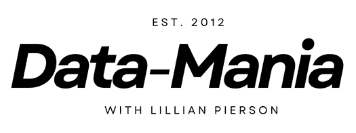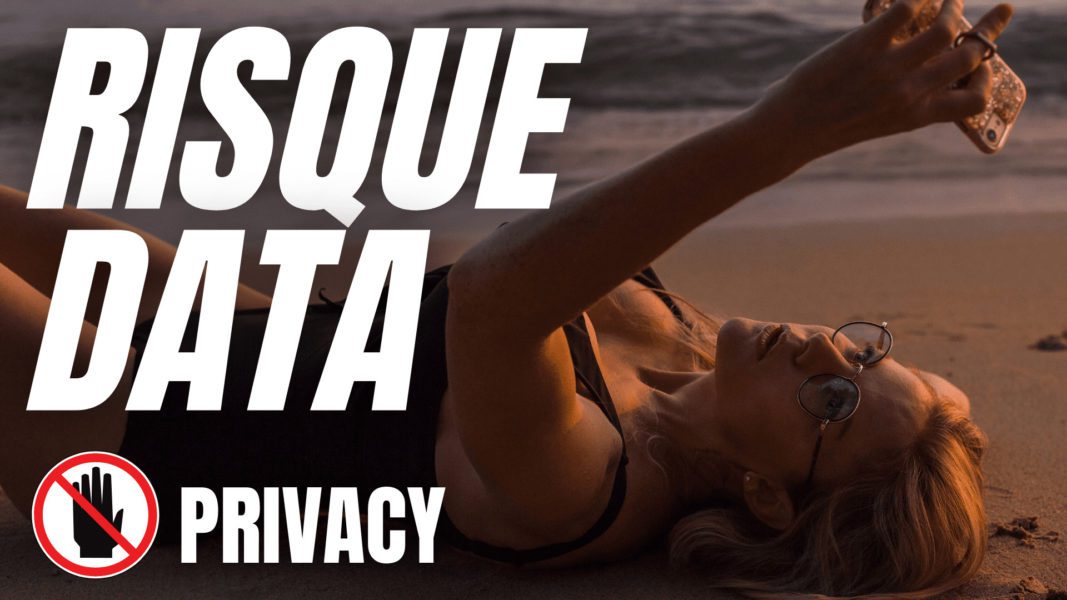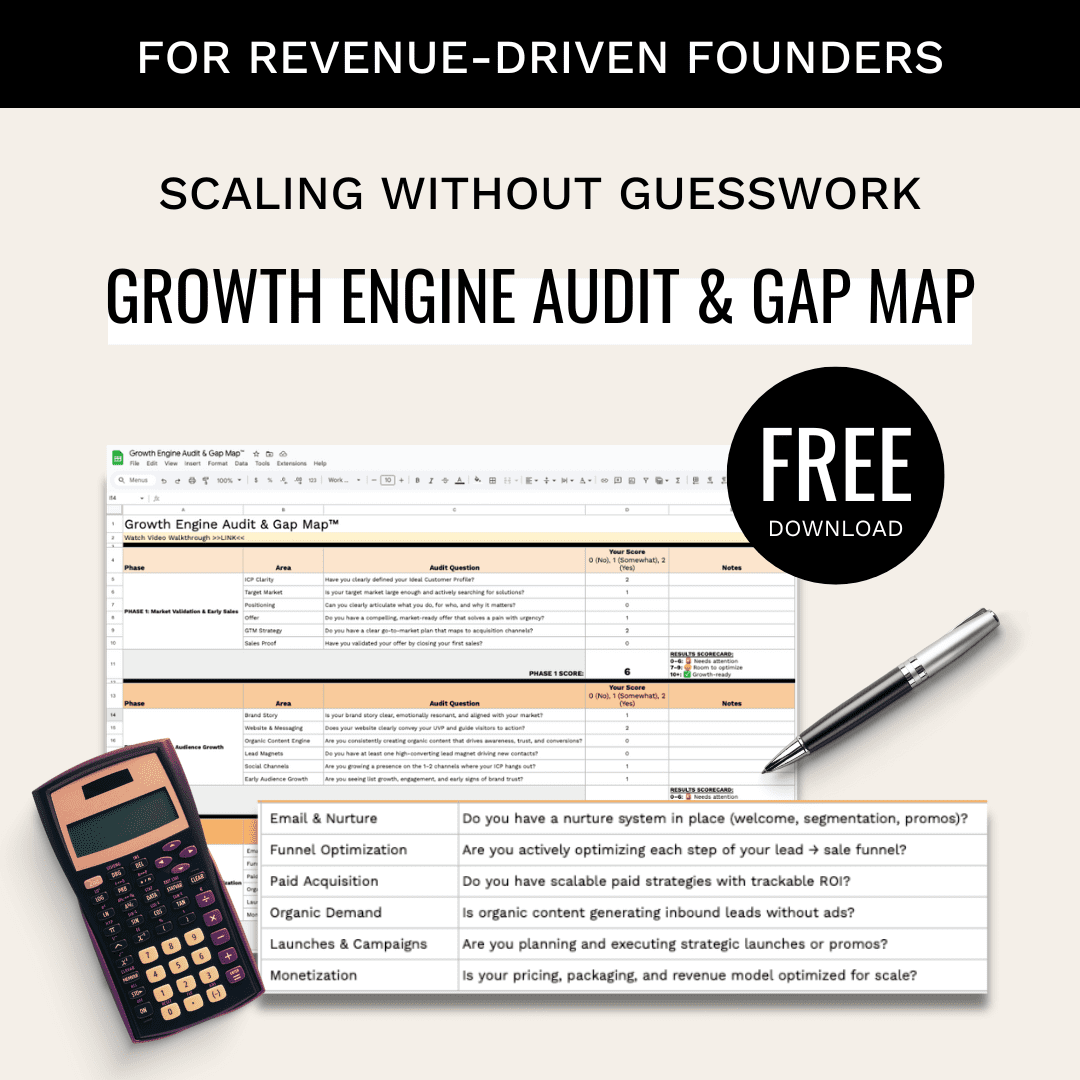What are the risks in data privacy and how can we ensure a more ethical use of data? In today’s article, I’ll be discussing data privacy, data ethics, and the complicated logistics that make the answer to this question so hard to answer.
I’m also going to share a personal story about the nightmare outcomes I’ve had to experience when I tried to use FB ads to grow my small business.
YouTube URL: https://youtu.be/lV08dioQcw4
If you prefer to read instead of watch then, read on…
For the best data leadership and business-building advice on block, subscribe to my newsletter below and I’ll make sure you get notified when a new blog installment gets released (each week). 👇
For some perspective on why I’m qualified to speak about data privacy – I’ve been a data professional for a decade, and an online entrepreneur for 9 years…
At this point I’ve helped educate 1.2 Million + data professionals on AI, and I’ve helped new data entrepreneurs get profitable fast in their own online businesses…
So you could say, I know a thing or two about both data science and data businesses, which is what companies like Facebook actually are.
My name is Lillian Pierson and I support data professionals to become world-class data leaders and entrepreneurs.
When it comes to data privacy, the biggest game-changer is Apple’s iOS 14 software update – a data privacy where Apple put a full stop to user tracking for any persons using iOS 14 or above. With this, Apple software will no longer report the user ID of their customers or any of their activities.
Consumers can sigh in relief with the open assurance that all of their activities are no longer being recorded, tracked, and shared on the open market unless they give their permission. Forced data privacy is coming!! Hooray, right?! Unfortunately, within a data-intensive ecosystem like the internet, things are not always as they seem. You really need to dig a bit deeper into what’s happening with personal data, technology businesses and data businesses. My goal for this article is to help spread awareness about what’s currently happening under the hood with respect to late-breaking data privacy developments.
The Problem: Danger
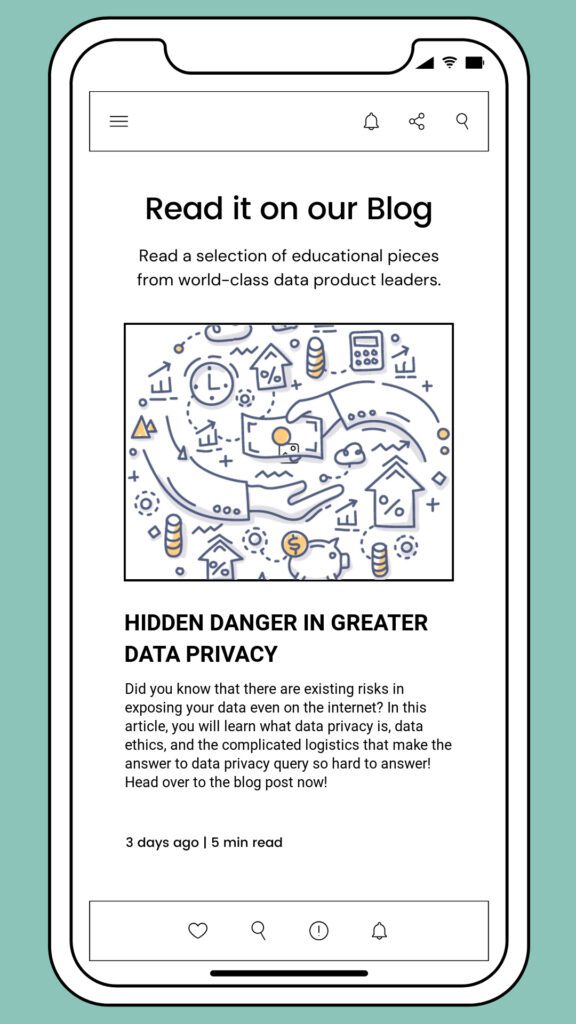 I think we can all agree that – YES, we need more data privacy. Corporations and the government spying on us sucks! It all started off on 9/11 when the towers came down and the US government got the impetus it needed to start spying on its citizens and the rest of the world.
I think we can all agree that – YES, we need more data privacy. Corporations and the government spying on us sucks! It all started off on 9/11 when the towers came down and the US government got the impetus it needed to start spying on its citizens and the rest of the world.
Then came Edward Snowden, the whistleblower, who revealed that the government is spying on everyone and that the FBI is collecting personal data from companies like Microsoft.
If you’re not familiar with what I’m talking about, there are some great YouTube videos out there that you can search for, such as:
- Safe and Sorry Terrorism Mass Surveillance
- Ethical Insights Big Data and Privacy Navigating Benefits Risks and Ethical Boundaries
- App Tracking Sucks
- 3rd Party Risks Sucks
And I can wholeheartedly say that I agree with all of the fundamental tenets of all these videos.
I just want to stop here and say that I 100% agree that free data collection usage and resale of personal data is both dangerous and unethical.
The Problem: Power Inequity
Like most of you, I believe that data and technology companies have way too much power. For an insider glimpse on the dangers of Facebook, let me share my personal story.
Just a few days ago, Facebook decided that in order for me to access my Instagram account with almost 100K followers, I need to scan my face and provide them with biometric data in hopes that their bots will recognize me and give me access to my data. If there’s any sort of hold up, I will not have access to my data nor I can download it out of Instagram, because the account will be gone. And there’s no way to get a hold of anyone at Facebook in order to request my data which actually belongs to me, according to GDPR. So, I believe that by making me give my biometric data in exchange for data that I own which I put in their platform, is against the law…but there’s nothing I can do about it.
The grievances I have with Facebook are so much worse than that, but of course because of the power of inequity, I can’t do anything about it.
I HATE FACEBOOK and for good reason.
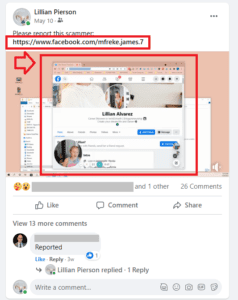
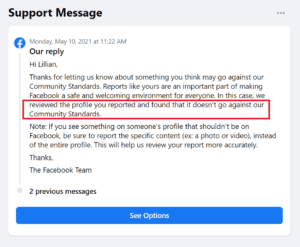
Besides the fact that they’re requesting my biometric data, they also have a bunch of scammers who go in there and create false accounts and take my photos, then actually scam people in America for thousands of dollars, using my images. Last time it happened, I had over 20 people report the account but Facebook didn’t take it down. In fact, they said that it doesn’t violate their community guidelines. The same thing happens on Instagram where people are creating false accounts using other people’s images and Facebook doesn’t care. I’ve asked them to verify my account multiple times. But I guess I’m not cool enough for them, so they won’t do it.
In fact, they would probably verify me if I spent enough money on Facebook ads, which I can’t actually do.
This is the real issue I had with them – back in 2020, I had ads running and I tried to use my account to log in to something called “picmaker.com,” then my Facebook account got hacked and they took it down. So, I submitted my passport and all other stuff to Facebook’s automated engine but it wouldn’t give me my account back. The ads are still running and I couldn’t get to my business manager. I tried every which way, but there was no way for me to get a hold of a person to check if my ads have also been taken down. It turned out that they didn’t.
When I got my personal account back through a Facebook employee (who manually submitted a ticket inside the company), they then banned my business manager, but not without removing the $600 in advertising fees that they run on my credit card without my consent. I tried to dispute this through my credit card company, but they said it happens all the time. Facebook blocks people out and runs up their bills and there’s nothing we can do.
So…
- Is FaceBook unethical? 100% YES!
- Are they “spying” less data literate people might say? So, yes, they’re spying.
- Are they unfair? 100% yes, they’re totally unfair.
- Are they criminally negligent? I think so.
- Should Apple cut off FB from getting data from apps on your phone? My answer is: I don’t know…
Now the reason is really complicated and I don’t know if I want to pay the price for that. Also, Apple wasn’t without it’s underlying motives…
Before I explain further, I’d love to hear from you.
Tell me in the comments – do you think FB is completely unethical, why or why not?
The Solution
Let’s go back to the nuts and bolts of data privacy – yes, I want total data privacy but NO, THERE’S NO EASY SOLUTION.
It really requires a “Risk / Benefit Analysis.” Data privacy is a lot like data governance, the looser the restrictions on data privacy, the more unethical behavior is gonna be happening across the internet. But if your data privacy laws and restrictions are too tight, then the internet really can’t run very well.
To do that, you have to understand the structures of these technology businesses because they are the relevant actors here.
While these are all technology businesses, their business models are completely different. The most important of these today are:
-
Hardware (that comes with software) product companies
This is Apple, Samsung, and the like. These hardware companies aren’t currently focusing on monetizing the personal data that they have on their users, but that’s not to say they won’t in the future. Instead of advertising to their customers on other platforms, they’ve built their own ecosystem in which they do indeed use personal data to advertise their products to their users.
-
Data companies
This is Facebook, Google, Tiktok, Snapchat and the like. These companies sell access to our personal data, including data that is collected through software on Apple and Samsung phones.The only way companies like these can stay in business is because of the value of the data they collect from their users. Unlike hardware companies like Apple, they don’t have much of a need to advertise their own products, since they already have the users. So they monetize by offering the chance for other businesses to advertise within their ecosystem.
Going back to Apple’s iOS14 update – in their highly contentious, politicized play, Apple recently thrust itself into the limelight as a data privacy champion in the eyes of most. On its face, it would seem like Apple is standing up for the people with respect to data privacy laws, but when you look deeper at it, is Apple really against using personal data to advertise to their consumers? No – Apple still continues to use its customers’ personal data to advertise to its own ecosystem.
Furthermore, by launching this attack against Facebook, Apple has hurt its own customers and partners in at least two big ways:
-
Hurting Apple application developers’ bottomline
Obviously if you pay $1,000 or more for a cellular phone, you want it to come with access to really awesome applications, right? As any iPhone user knows, Apple does not play friendly with any non-Apple technology, so you can’t download apps from Google Play – Google’s application store for all Android users – you have to get your applications only from Apple’s App Store. Well, the developers of those applications need customers so that they can generate revenue and then reinvest a significant amount of that money into improving their applications. But where are most of these revenue-generating customers coming from? They come from ads that are run on data businesses like Facebook, Google, Snapchat, etc. Without these ads, how will application development companies stay in business?
-
Decreasing Apple iOS app quality
To turn a profit, and subsequently reinvest in developing the best iOS applications possible, iOS app developers need customers. By cutting off user identification reporting, Apple’s own app developers can no longer get the conversion tracking data they need to run ads to get more customers. This is going to result in fewer customers for them. This then leads to decreasing revenues, and subsequently lower quality standards for the application they develop. Maintaining a great software product costs money. When you lose a leads source, you get decreased sales and have less money to use for product maintenance. This change can’t be good for Apple customers who are already trapped within the Apple ecosystem and unable to use any applications from within the open source Google Play store.
So, is Apple a savior? Meh.
It almost seems like Apple cut off it’s own nose to spite its face, doesn’t it? While Apple’s recent move means more privacy for its users, it also means less relevance with respect to advertisements those users see. It represents a complete loss of the ability to do any real-time advertising optimization. No one I know wants to see more ads for things they don’t care about. Who out there has not discovered courses, products, or services that they absolutely adore but would never have known about if it wasn’t for the precision at which Facebook was able to match your interest and passions with various marketplace offers?
If this whole discussion on personal data collection and resale is news to you, then you’d probably be super interested to hear the story of how one company is buying personal data and reselling to the tune of $450K per month. Check it out here.
The Cost Of Data Privacy
Here is what stricter data privacy laws going to cost you:
Expect to pay by being forced to repeatedly consume the same annoying, spammy ads that you have absolutely no interest in seeing ever again. Relevant advertisers will no longer be able to find you, and the ads that do make it through will not be optimized to conform with your desires, expectations, and preferences.
No targeted ads = higher cost per customer.
Higher cost per customer means higher prices.
As rollouts like these affects more and more platforms. This means the platforms and their advertisers are going to have less and less data to use in evaluating what’s working and what’s not. Current estimates are that 30-40% of the conversion tracking data will be lost by the platforms. This includes all of the businesses, brands, and advertisers that use them. Imagine paying $1000 to run an ad. In return, you don’t get any information about how that ad performed, or whether it actually generated any leads or sales for your business whatsoever. Who would do that? For professionals who make their living helping companies create value from data, the enormity of problems this “cookieless society movement” will create should be beyond obvious.
For data professionals, these changes are like taking food right out of our mouths.
No more free Facebook, Google, IG, what have you – someone has to pay. If you don’t allow advertisers to pay for the service for you, then you’ll ultimately have to pay yourself.
So unfortunately, data privacy isn’t a simple matter.
One last thing, the data privacy officer is the data pro. The person is responsible for managing data privacy issues like we just discussed. It is one of the 50 emerging data roles I report on in my Data Superhero Quiz. This is a fast, fun, 45-second quiz for data pros! It aims to help you uncover the optimal role for you given your passions, skillsets and personality.
Take the Data Superhero Quiz Today!
Hey! If you liked this post, I’d really appreciate it if you’d share the love with your peers! Share it on your favorite social network by clicking on one of the share buttons below!
NOTE: This description contains affiliate links that allow you to find the items mentioned in this article and support the channel at no cost to you. While this blog may earn minimal sums when the reader uses the links, the reader is in NO WAY obligated to use these links. Thank you for your support!
